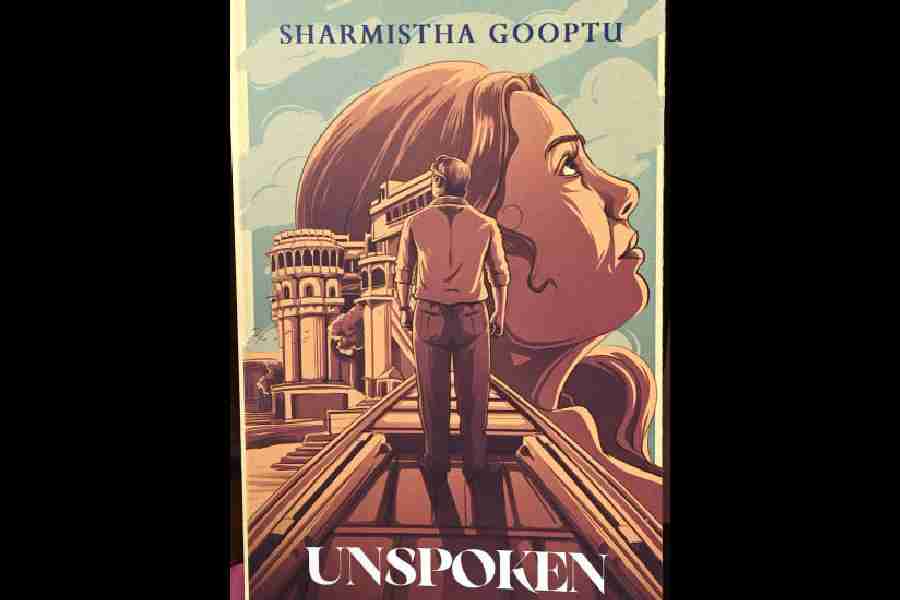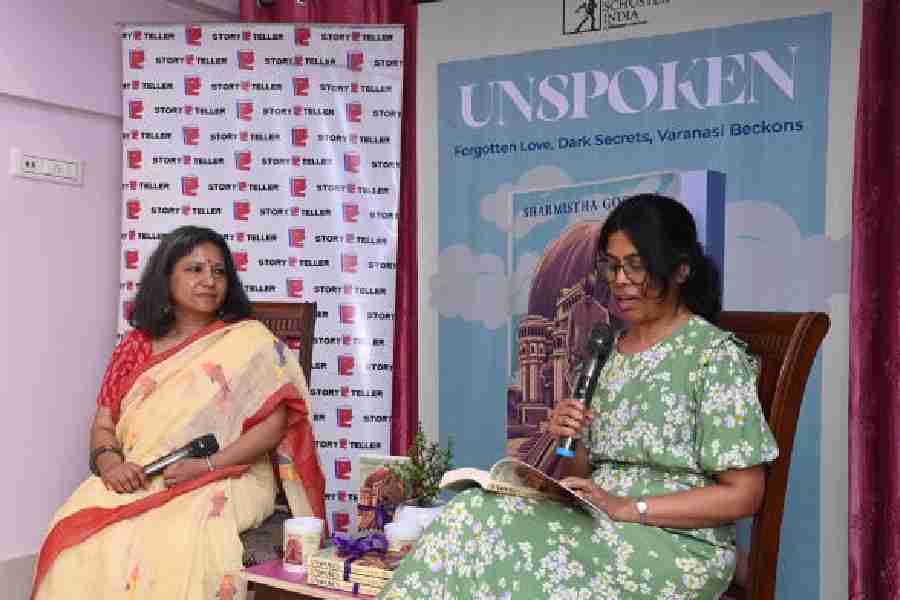Historian and writer Sharmistha Gooptu is exploring the world of fiction — first with Menoka Has Hanged Herself (2019) and now, Unspoken. While the first book involved incorporating her research of 15-20 years, the latest one is a modern book, distancing itself more from pure research. Gooptu, who is an authority in South Asian history and culture and who also has Bengali Cinema: ‘An Other World’ in her oeuvre, brings a deeply personal story of a mother and daughter with Unspoken. A chat with Gooptu, after her book launch at Storyteller Bookstore, Ballygunge. She dedicated the book to her daughter Aisha.
You call the book personal. What inspired Unspoken?
It’s personal in the sense that I wrote it during the pandemic when I, like all of us, was thinking of issues like mental health. I first started thinking of a mother-child relationship and how we are judged. Also, when a child makes a mistake, he/she knows that my last refuge is my mother who will not judge me but will love me and accept me with all my flaws. However, when a mother makes a mistake, she is most afraid that her children will judge her. This dynamic intrigued me and all of these things came together to form the crux of the story. I then brought in the aspect of dementia, where you don’t know what is true and what is untrue. And that was also true of what we experienced during the pandemic. We didn’t know what to believe and what not to believe with the kind of information that we were receiving confined in our homes. I drew parallels between the pandemic world and this character called Mrs G, who had dementia and who is telling her daughter about her past relationship. On the one hand, it’s a betrayal for the daughter, but on the other, she doesn’t know if this is her mother’s dementia mind.
Is the book framed in the pandemic world?
No, the book is set in the post-pandemic world, in 2024. I have signified the post-pandemic world when everyone’s life changed. For this family, the daughter lost her father and her mother is diagnosed with dementia. So, the story is also about how she walks through these new changes and things take her to Varanasi.
Is it just about a mother-daughter relationship or goes beyond that?
Primarily, yes, it is about a mother-daughter relationship but then it is also a love story. It talks about abusive relationships and the power dynamics in a relationship and not just man-woman dynamics. Often women manipulate other women. So, a complex story is happening in the mother’s life.
What role does Varanasi play in the story?
Varanasi is a place which is poised between life, death and celebration. Also, Varanasi is a place where the past flows into the present. So I tried to match the dynamics of the place, Varanasi, with this girl’s situation in life. She’s thinking that her mother will degenerate and at the same time, in some moments, they are alive together.
As an author, you draw inspiration from different people for your characters. Where does the main character draw inspiration from? Also, how much of you is in the story?
As much as with any writer, you put a little bit of yourself into each character. How you see the world is you. As for inspiration, I have a friend whose mother is in advanced stages of Alzheimer’s. The character was built further from that point to add to the story.
You are a historian first. How does that part come into play while writing a novel like this?
Honestly, a lot of the historian in me comes into play when I am writing a story. This is the first book I have written which is not based on historical research. This is a very modern book but my training as a historian helped me a lot. For instance, I created an archive of my own, talked to doctors, watched films, and so on.
After Unspoken, do you have anything on your mind for the next book?
I have the germ of another book but I don’t know yet if it will transform into anything concrete.

Unspoken by Sharmistha Gooptu. Published by Simon and Schuster. Price Rs 499
